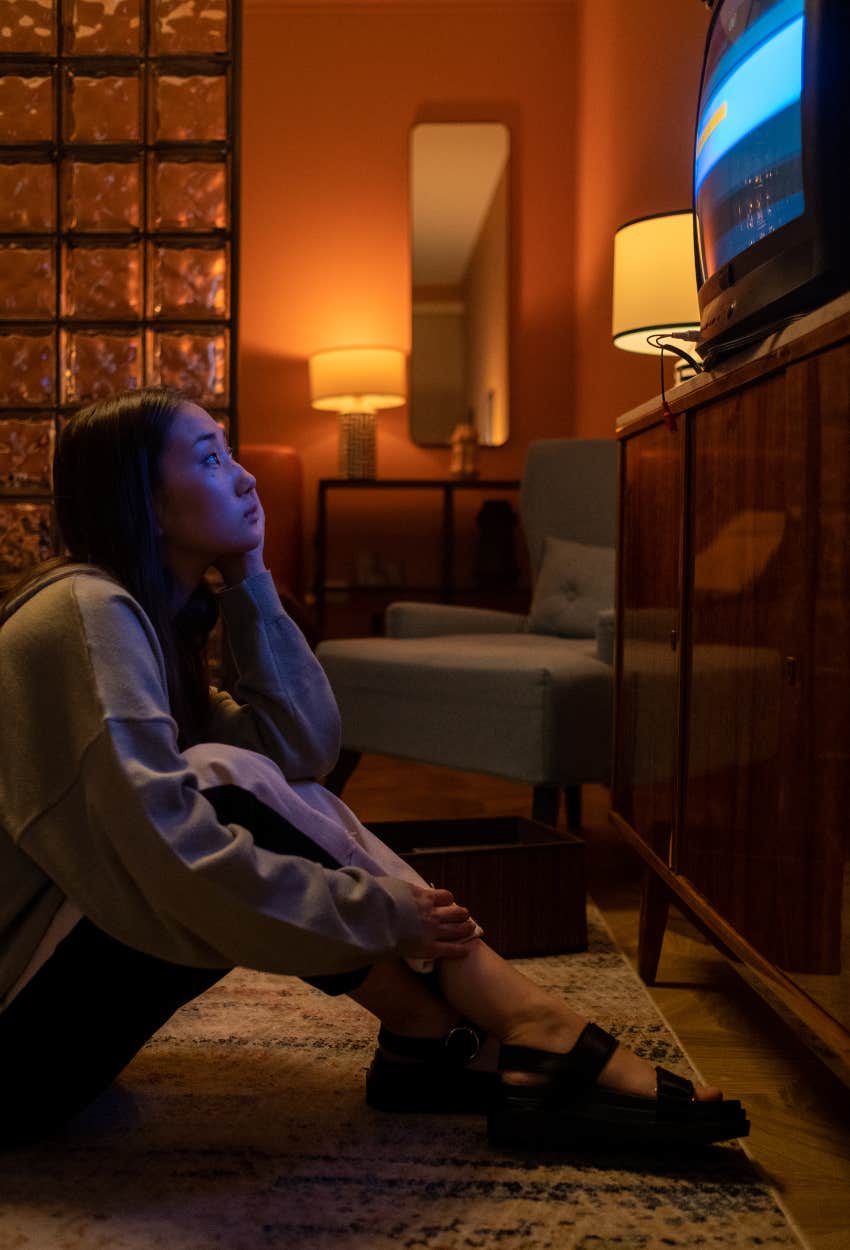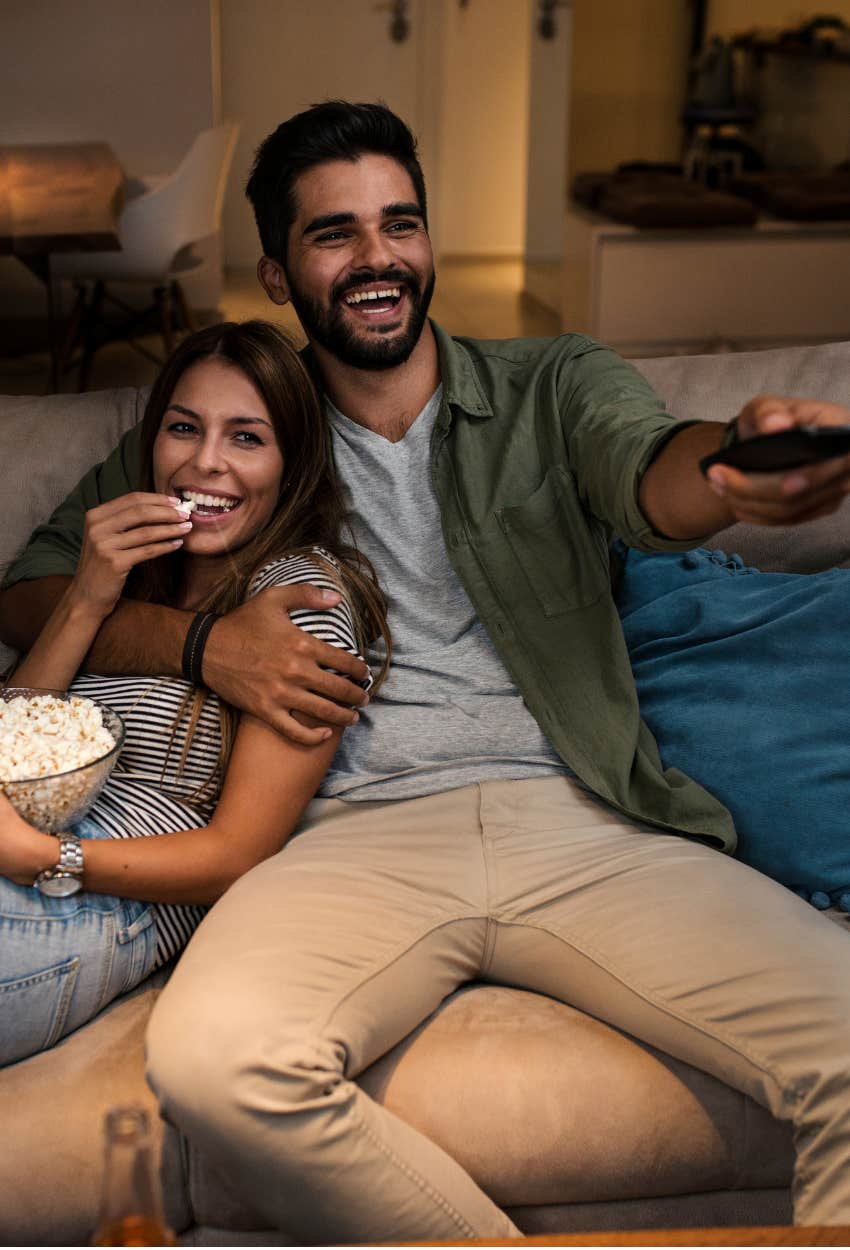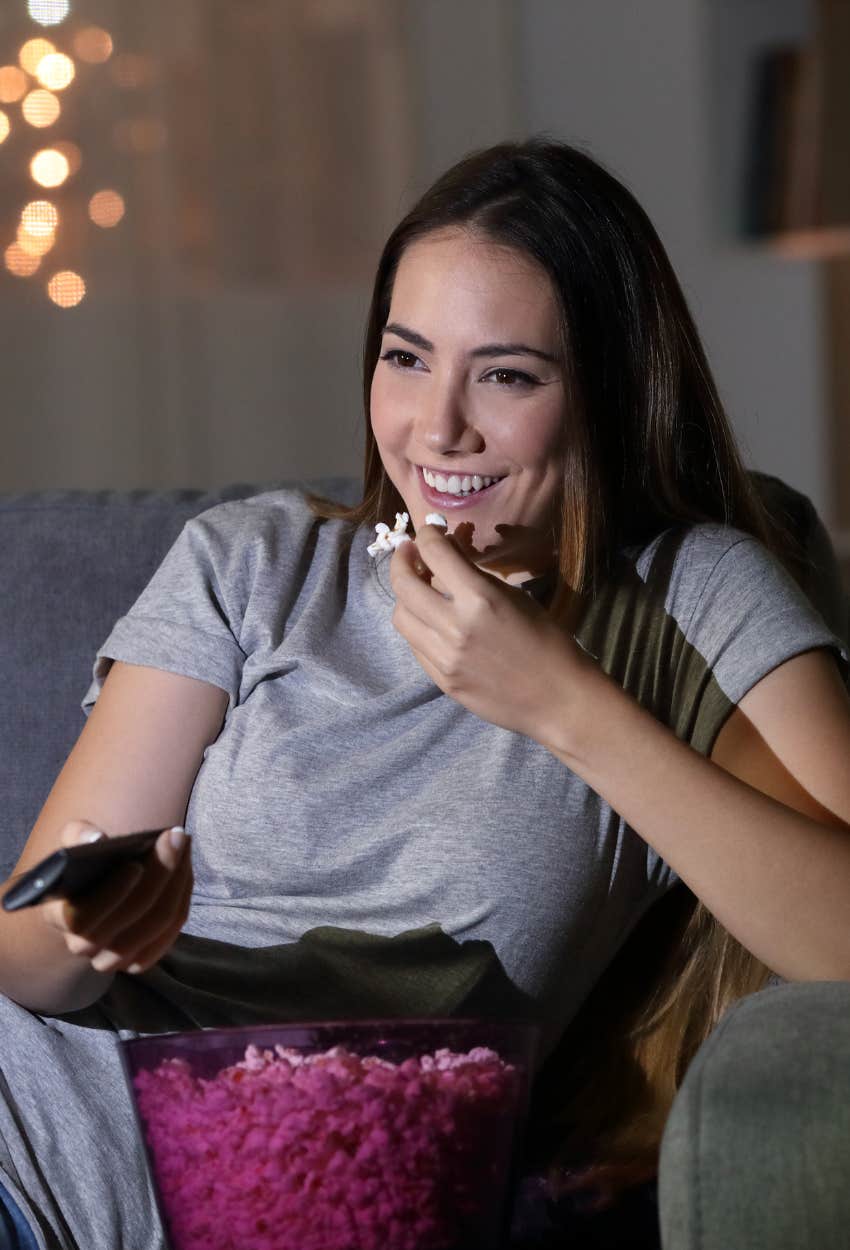4 Reasons Brilliant People Choose To Watch The Same Shows Over & Over Instead Of Starting A New One
If you've seen every episode of 'The Office' 30 times but haven't yet started the first episode of 'White Lotus,' psychology says you're brilliant.
 Astarot from Getty Images | Canva
Astarot from Getty Images | Canva There's never been more choices when it comes to TV viewing. The "golden era" of television in the 2010s quickly gave way to a whole bevy of streamers full of so many TV shows from all over the world that none of us could likely live long enough to watch them all. So why do so many of us end up watching the same old things over and over and over again when there are this many shiny and new shows ripe for the picking? Psychologists have some insights, and it's actually a lot simpler than you might guess.
Now, as a cranky snob, I'd like to say that at least part of the reason for this is that most of the gazillion shows we have access to these days aren't any good, they're just bingeable, and those are two different things. Why, in my day, TV shows had plot and characterization and good writing, not just cliffhangers! (Looking at you, Netflix.) But admittedly, even my cantankerous behind finds myself defaulting to a handful of old favorites that aren't necessarily any better than today's shows. It's not like those daily "Friends" marathons on TBS that I constantly throw on while I clean the kitchen are high-brow art films!
Psychologists say that it ultimately comes down to some very simple facts of how our brains work, as well as the fact that there's comfort in familiarity, which is no small thing in times like ours. Here are four reasons why so many of us have developed this habit.
1. The mere-exposure effect
 Ron Lach from Pexels | Canva
Ron Lach from Pexels | Canva
The mere-exposure effect is a psychological concept that explains how things become more beloved the more familiar we become with them, just based on repetition. It's part of how friends sometimes become lovers, for starters, but it impacts all sorts of other parts of life too, including works of art.
"The Great Gatsby," for instance, was a flop upon its release, but it's now considered a literary masterpiece. The Eiffel Tower was reviled as an eyesore when it was first built, but it's now synonymous with France itself to most of the world. And a University of Chicago study found that the exact same thing is at play with rewatching TV shows.
Revisiting them makes us notice new nuances that enhance our love and attachment to the show. So aside from the comfort of familiarity, it becomes a reflex to reach for more "Parks and Recreation" rather than starting over from the beginning on something new, because our brains know it will make us like the show even more.
2. Nostalgia is therapeutic
 Martinns | Getty Images Signature | Canva Pro
Martinns | Getty Images Signature | Canva Pro
Nostalgia isn't just fun and wistful. It actually helps us heal and cope. There's an actual treatment modality based on it called reminiscence therapy, in fact, that has been shown to increase well-being and even help treat dementia.
When I put those "Friends" reruns on in the background, I'm taken back to the "Must See TV" night in the dorm TV lounge in college (yes, we used to have those). When I do yet another rewatch of "VEEP," it takes me back to a time when the American government being a farce run by lunatics was the plot of a, well, farce that aired on HBO. Etc.
In short, revisiting shows takes us back to the times and people from our past, and given our present, the appeal is not exactly surprising!
3 The paradox of choice
 Proxima Studio | Canva
Proxima Studio | Canva
In 2004, psychologist Barry Schwartz published his book "The Paradox of Choice," which explored how the more options we have to choose from, the more stressful we find decision-making and the less satisfied we tend to be with whatever we pick. Schwartz's book focused mainly on our retail environment—like the overwhelming cereal aisle in all our supermarkets, for example, but it's no less relevant to things like television.
Figuring out what to watch was often hard enough when there were only a half-dozen TV networks and another handful of cable channels. Now? There's so much to sift through on every streaming platform that it becomes actively stressful to try to land on something to watch, and in our times, ain't nobody got time for that. "Breaking Bad" for the 458th time it is!
4. They help us feel less alone
 AntonioGuillem from Getty Images Pro | Canva
AntonioGuillem from Getty Images Pro | Canva
And speaking of our trying times, a 2009 study found that revisiting a favorite TV show is not only a comfortably familiar security blanket, but it actively enhances our sense of well-being because we form parasocial relationships with the beloved characters. Carrie Bradshaw and the gang feel like our old gal pals, the weirdos on "The Office" feel like our very own colleagues whom we love in spite of themselves.
The study showed that this had a very real impact on people's self-esteem, their levels of loneliness, and even their perceptions of threats to the real relationships in their lives. Given how fractured so many of our real-life connections are these days, is it any wonder that curling up with an old favorite has become such a common pastime?
John Sundholm is a writer, editor, and video personality with 20 years of experience in media and entertainment. He covers culture, mental health, and human interest topics.

